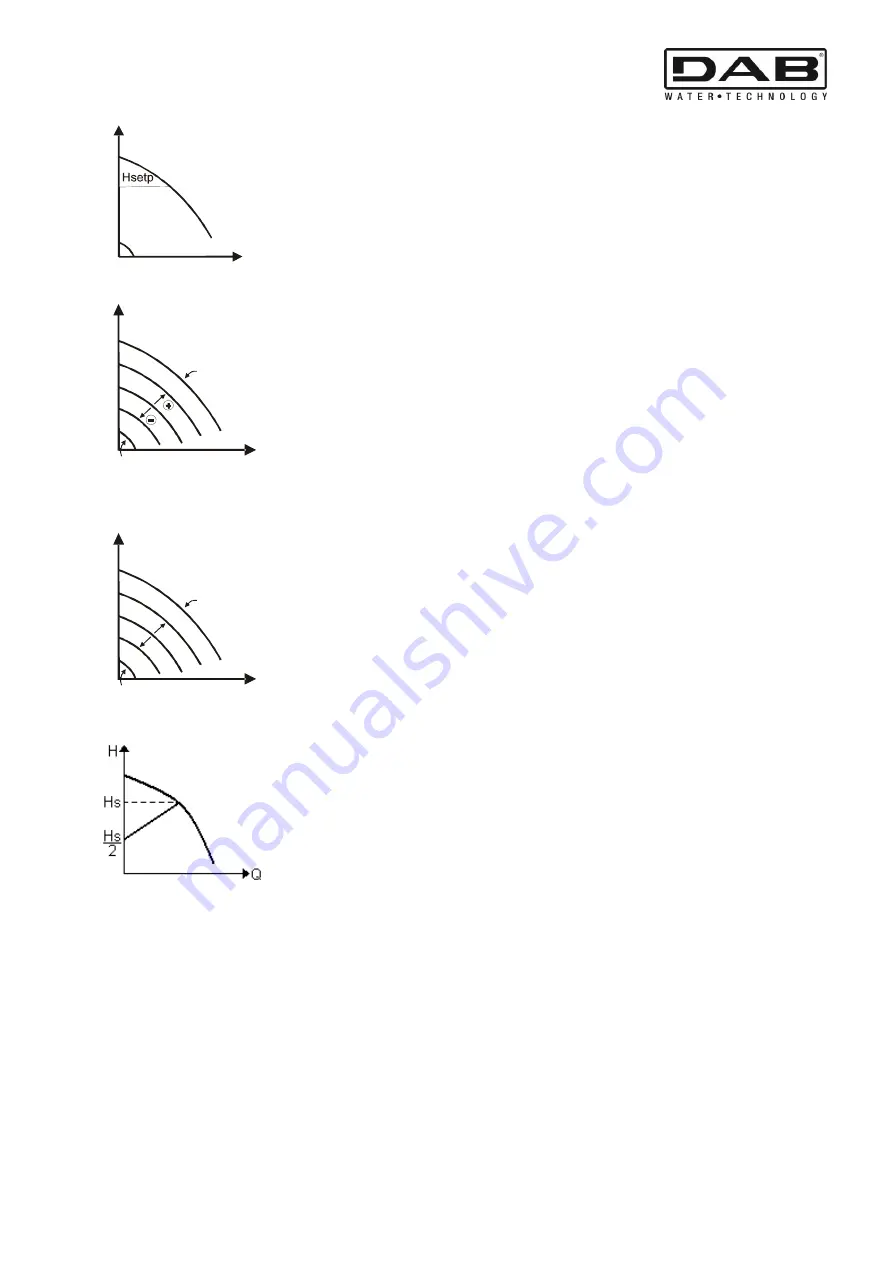
ENGLISH
42
7.1.1
Regulation with Constant Differential Pressure
The head remains constant, irrespective of the water request.
This mode may be set by means of the control panel on the cover of the MCE-22/C (see par. 9).
7.1.2
Regulation with Constant Curve
The rotation speed is kept at a constant number of revolutions. This rotation speed may be set
between a minimum value and the rated frequency of the circulation pump (e.g. between 15 Hz and
50 Hz).
This mode may be set by means of the control panel on the cover of the MCE-22/C (see par. 9).
7.1.3
Regulation with Constant Curve with External Analogue Signal
The rotation speed is kept at a constant number of revolutions in proportion to the voltage of the
external analogue signal (see par. 5.5.2). The rotation speed varies in linear mode between the
rated frequency of the pump when Vin = 10V and the minimum frequency when Vin = 0V.
This mode may be set by means of the control panel on the cover of the MCE-22/C (see par. 9).
7.1.4
Regulation with Proportional Differential Pressure
In this adjustment mode the differential pressure is reduced or increased as the water request
falls or rises.
This mode may be set by means of the control panel on the cover of the MCE-22/C
(see par. 9).
7.1.5
T constant function
This function causes the circulator to increase or decrease the flow rate to keep constant the temperature measured by the NTC
sensor, connected as described in paragraph 5.5.3.
Four operating modes can be set:
T Regulation:
Increasing mode T
if the desired temperature (Ts) is higher than the measured temperature (T), the circulator increases the flow
rate until Ts is reached
Decreasing mode T
if the desired temperature (Ts) is higher than the measured temperature (T), the circulator decreases the flow
rate until Ts is reached
T1 Regulation:
Increasing mode T1
if the desired temperature (Ts) is higher than the measured temperature (T1), the circulator increases the flow
rate until Ts is reached
Decreasing mode T1
if the desired temperature (Ts) is higher than the measured temperature (T1), the circulator decreases the
flow rate until Ts is reached
H
Q
H
Q
Max.
Min.
H
Q
Max.
Min.




































